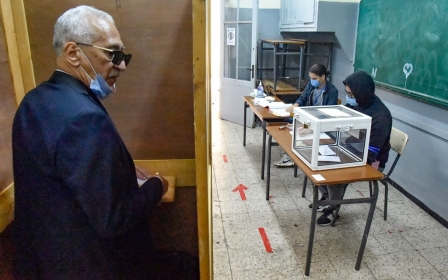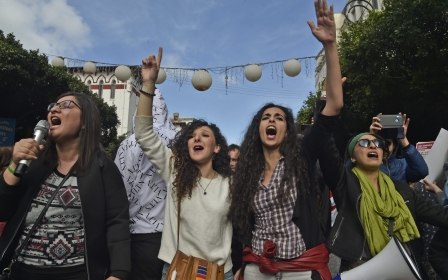Algeria: Voters back constitutional changes despite historically low turnout
A proposal to revise Algeria’s constitution won the most votes in Sunday’s referendum despite the lowest ever turnout for a major election in the country.
While fewer than one in four registered voters cast a ballot, two thirds of those who did vote supported the changes, the electoral commission head Mohamed Charfi told a news conference on Monday, adding that the coronavirus had negatively affected the final turnout.
However, it means that only 15.8 percent of registered voters went to the polls and cast a ballot in favour of the new constitution.
The historically low turnout undercuts the government strategy of using the poll to neutralise the popular Hirak protest movement, which had rejected the amendment "in substance and form", calling it a "change of facade" and urging voters to boycott the poll.
Prominent members of Hirak hailed Sunday's low turnout as a defeat for the government's strategy.
"I hope men and women within the system will understand this lesson and do what is needed to listen to the people's demands.
"The people want their own constitution and institutions," Mustapha Bouchachi, a lawyer and human rights activist, told Reuters.
President Abdelmadjid Tebboune, who is currently hospitalised in Germany, pushed the process of constitutional reform to try to quell mass street protests that thrust Algeria last year into its biggest crisis for decades.
The protests forced Tebboune's predecessor Abdelaziz Bouteflika to step down last year after 20 years in office, and continued even after December's election, stopping only when Algeria imposed a lockdown against the pandemic.
Tebboune had hailed the protests as a moment of national renewal, offering dialogue with demonstrators and embarking on a process of consultations to change the constitution.
'Authoritarian constitution'
The changes approved in the referendum include presidential term limits, new powers for the parliament and judiciary, and a clause to let the army intervene outside Algeria's borders.
But observers have pointed out that the draft keeps key powers and appointments in the hands of the president.
If passed, it will be "the most authoritarian constitution in the entire Mediterranean", said constitutional researcher Massensen Cherbi of Sciences Po university in Paris.
Meanwhile, the authorities tried and imprisoned close Bouteflika allies and prominent businessmen in his circle on corruption charges.
Yet many Hirak members maintain their goals - replacing a governing elite that has ruled since independence from France in 1963, ending corruption and forcing the army to withdraw from politics - were only partly accomplished.
Middle East Eye delivers independent and unrivalled coverage and analysis of the Middle East, North Africa and beyond. To learn more about republishing this content and the associated fees, please fill out this form. More about MEE can be found here.





